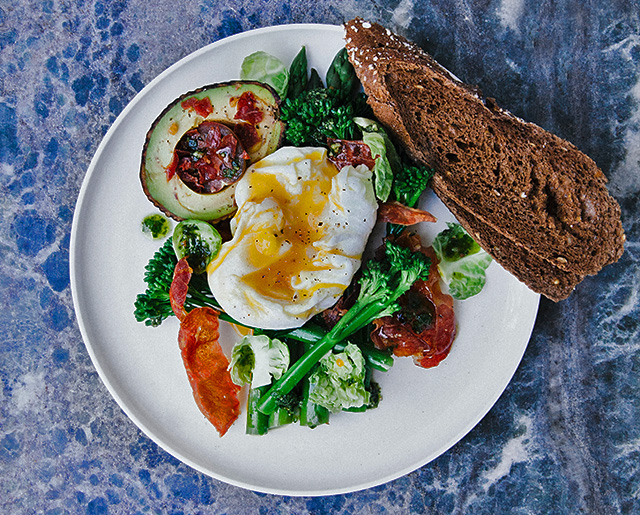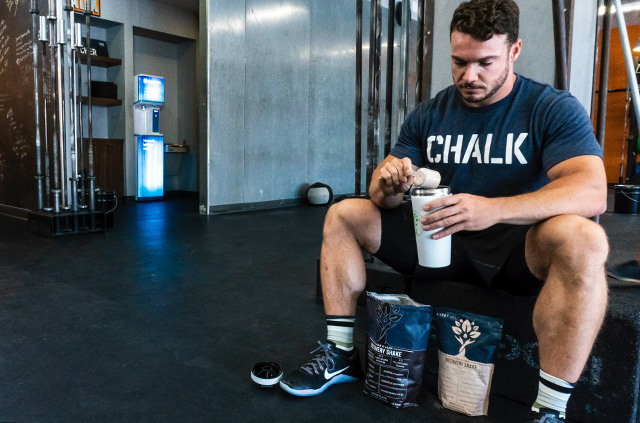Athletes, just like the rest of us, need a certain amount of body fat to give their body energy, support cell growth, keep blood pressure and cholesterol under control, protect their organs, and maintain other bodily functions.
However, having a high body fat percentage could negatively affect their sports performance. There are even some athletes who did successfully lose weight but end up jeopardizing their immune function and overall performance.
Why? It’s because athletes and active individuals have unique weight management needs and high daily energy expenditures.
How then do you balance healthy weight loss or weight management without sacrificing performance? Don’t worry. We got you covered!
Here, we compiled the dos and don’ts for athletes and active individuals who want to lose weight!
Best Tips To Lose Weight Without Sacrificing Sports Performance
Do: Lose Fat When You’re Not Competing
Athletes’ calendars are often broken down into four sports seasons: Pre-season, Main Season/ In-Season, End of Season, and Off-Season.
If you want to lose weight healthily as an athlete, it is best to do it off-season. It’s usually 4 to 6 weeks of break from actual training, designed to allow your body to recover in preparation for the training season (Pre-Season).
This is also the period where you decrease your sports skill work and begin on strength development and functional movement. It will be less risky to lose weight during this season as losing excess body fat requires reducing energy intake, which means lower energy levels.
And because you’re not competing, you’ll have more time to focus on your weight loss goal!
Don’t: Drastically Cut Calories
Eating foods with low or zero calories is the common approach most dieters take to meet their weight-loss goals. However, drastically reducing your caloric intake could slow your metabolism and consequently make your weight loss slower.
So, as much as possible, avoid crash diets because your nutrient intake also needs to support proper training and muscle recovery. Active people, especially lean athletes, who want to lose weight should not restrict their energy intake too quickly to avoid lean tissue loss.
Just go slow by eating about 300 to 500 fewer calories daily, but don’t eat less than 13.5 calories per pound of fat-free mass every day.
 balancing your food groups
balancing your food groupsDo: Balance the Food Groups at Each Meal
Variety in your diet is necessary for a healthful diet and peak athletic performance. The five food groups that should make up your food plate should include vegetables (2.5 cups every day), fruits (1.5 cups), grains (6 ounces), proteins (5 ounces), and dairy (3 cups).
Still, this may vary, depending on your age, gender, and level of activity. Doctors or sports dietitians may suggest a diet based on your health and physical activity.
We also suggest you do meal preparation so you’re less likely to choose an easy, quick, and unhealthy option that will only slow your weight loss progress.
If you have a meal plan, you can be sure that you’re only eating clean food and it’s easier to make it into a habit!
Don’t: Step on the Scale Daily
Yes, you read that right. Don’t step on the weighing scale daily.
While we understand that you want to see results every day to justify your hard work, we don’t encourage you to weigh yourself every day.
Changes in menstrual cycle patterns for women athletes, glycogen storage, bowel movements, and hydration could drastically change numbers on the scale daily.
Moreover, stepping on the scale every day only to see you’ve not lost any weight or you have gained weight can lead to your self-esteem and confidence plummeting.
Next thing you’ll know, you’ll start to think “I can’t do it.” This disappointment can lead you to give up weight loss completely.
Instead, assessing your weight by tracking your body composition and body fat percentage are better ways to know if you are meeting your weight loss goals.
Do: Eat With a Routine
Timing your meal is important to athletes. Having enough fuel during your demanding training sessions can help prevent physical and mental fatigue and sustain their energy levels.
Let’s say, you’re eating healthy foods, but continue to eat in a chaotic pattern. The result still disrupts the normal biological rhythm in your body.
It’s because food consumption impacts the central clock in your brain. It also controls the circadian rhythm - a natural internal process in the body - that affects metabolism or how your organs work.
That is why we encourage you to eat with a routine. Try to eat breakfast, lunch, and dinner at the same time daily. Make sure you’re fueling up right before and after your training. Don’t skip meals as this doesn’t help you lose weight.
Don’t: Deprive Yourself of Few Treats (Occasionally)
Desserts, junk foods, chips, and most sweets are often the first to go when cutting calories.
However, even experts say this isn’t a realistic approach. It’s okay to allow yourself a few treats occasionally to satisfy their salty craving or sweet tooth.
What’s important is you just find the right balance so you don’t end up bingeing later. If possible, choose treats that still provide some nutrients, such as baked chips, candy made with dark chocolate, dried fruit, or nuts.
 protein shake supplement
protein shake supplement Do: Consider drinking nutritional supplements
Athletes often have a more demanding energy and nutrient requirement than most adults. In particular, they may need more protein and calories to sustain their training sessions and daily activities.
That’s why most sports dietitians also include nutritional supplements like protein shakes in an athletes diet.
It’s also a great meal alternative for athletes who are looking to lose weight. Because it’s convenient, nutrient-dense, and not highly caloric, athletes aiming to shed some pounds could go for protein shakes and nutritional bars as a mid-meal or snack alternative.
Extra protein from protein shakes may also help you maintain muscle while feeling less hungry during your weight loss journey.
The Bottom Line
Undoubtedly, losing weight is challenging and requires hard work, more so for athletes who still have to consider ways that won’t negatively affect their health and sports performance. But, just stay motivated and you’ll soon reap the benefits!
Just remember that losing the excess fat will not only improve your speed, strength, and endurance, it will also be one of the greatest health gifts you can give yourself!
Related Pages
- Weight Loss for Athletes
- Making Weight: Tips for making weight using nutritional strategies.
- 5 Ways Athletes Can Lose Weight Safely — tips for athletes to lose weight greadually and safely.
- All about sports nutrition


 Current Events
Current Events